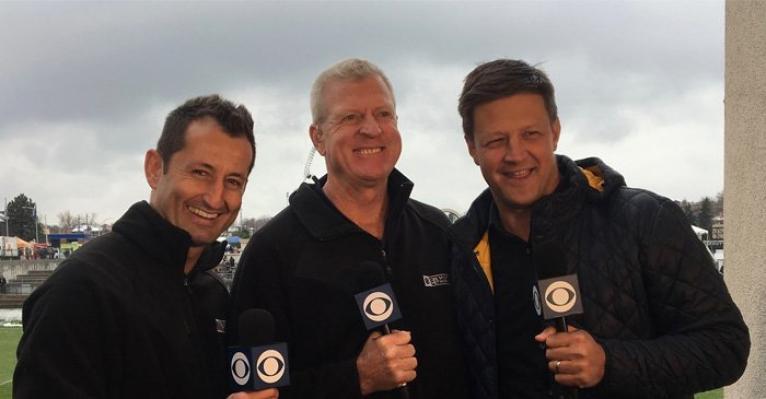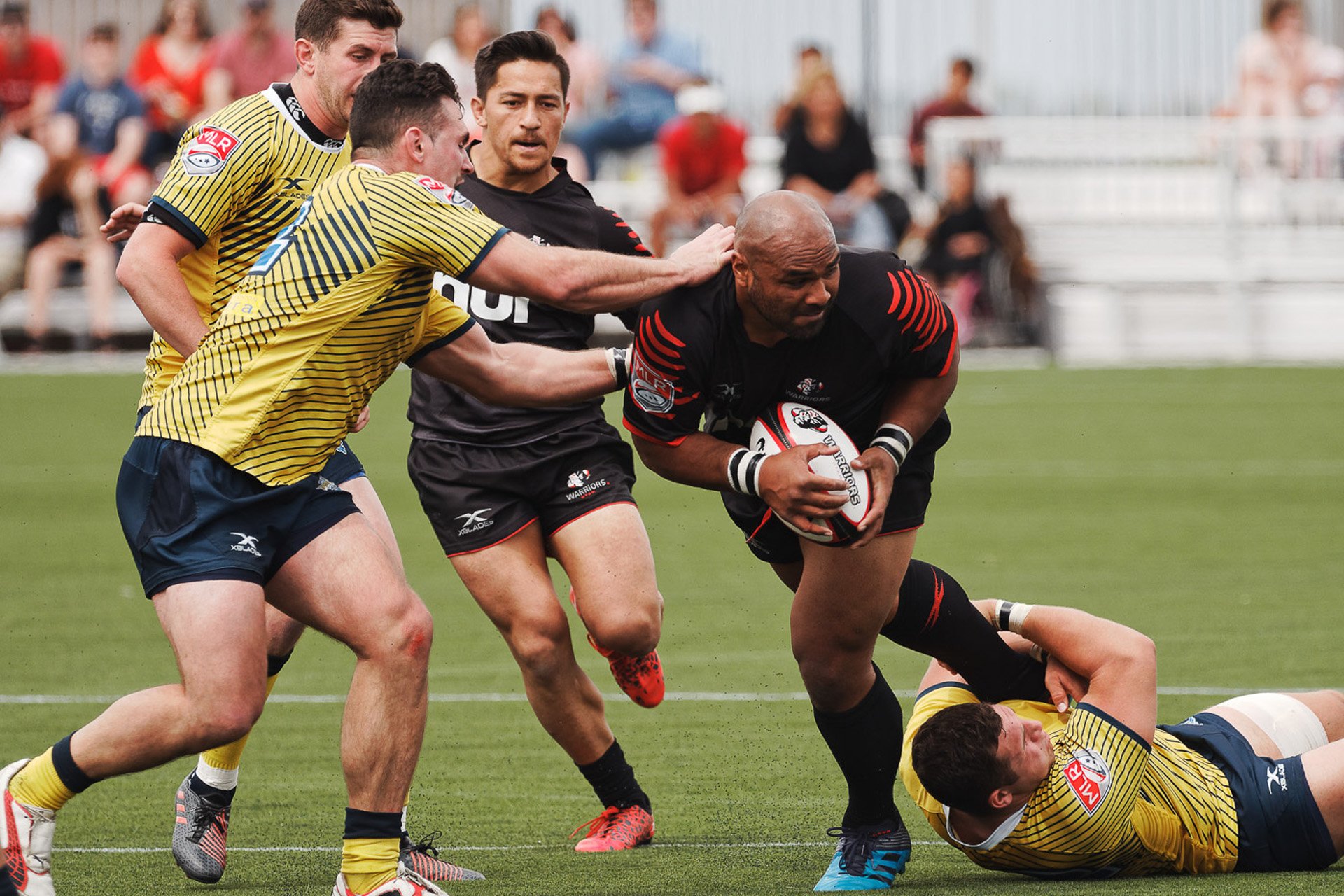Major League Rugby: Q&A with MLR commentator Dallen Stanford

With the first regular season of Major League Rugby now complete, we had a Q&A with former USA Sevens representative and current MLR broadcaster Dallen Stanford, who chatted about the promise of the new league and the continued development of rugby in the United States – plus who to look out for in the Major League Rugby playoffs.
Dallen can be found on Twitter at @therugbycorner and on his website.
RugbyPass: How much promise does this competition have moving forward and what do you think will be the key to its longevity?
Dallen Stanford: The key to its longevity is the ownership model, with seven different groups involved in year one.
The previous attempt at professional rugby in the US was owned by one entity, hence the Major League Soccer (MLS) model used today is proving extremely successful.
The fact that expansion is already in the works bodes well for the league: Rugby United New York (2019), potentially Washington, D.C. and Dallas (2020) plus interest from other cities including Boston, Chicago, Kansas City, Los Angeles, Toronto and Vancouver.
Vitally important is engaging the community, especially the sports fan that doesn’t know rugby, which will help sustain the competition’s growth. Many of the franchises have done some impressive work in their communities, showcasing rugby’s positive values.
The local media attention has been extremely exciting to witness in the various markets, including broadcasting all Major League Rugby (MLR) matches. Having a match each week on national television (CBS Sports Network) has been gold for the growth of the game. MLR has also broadcast the rest of the fixtures via ESPN, AT&T SportsNet/ROOT Sports and Facebook Live for overseas viewers.

The Seattle Seawolves sold out all four of their home matches at the 4,500 seater Starfire Stadium, while strong attendance numbers were recorded at the other venues at times throughout the season. The match I called at Torero Stadium in San Diego this past weekend had 3,000 fans with a wonderful atmosphere seeing hundreds of kids getting autographs and kicking a rugby ball around after the game. Infinity Park should have a very strong crowd yet again this weekend for the MLR Playoffs as they do a fantastic job promoting the game in RugbyTown USA.
Do you think this competition has increased America’s interest in rugby?
DS: Definitely. But before answering that, several performances and results have garnered more interest in rugby in North America:
– Top 4 finish at 2017 Women’s Rugby World Cup
– USA 15s Men going 8-0 in 2018, including back-to-back Americas Rugby Championship titles and the 30-29 thriller against Scotland
– Winning the USA 7s in Las Vegas (Men) and Perry Baker being named World Rugby’s 7s Player of the Year
– Silver (Dubai) and Bronze (Langford) for Women’s 7s.
Major League Rugby has unearthed plenty of new fans over the past three months, evidence being strong attendance numbers at many of the matches and increased social media fan engagement.
There will always be the loyal rugby fan attending in person, watching on television or online, posting on social media – but capturing the non-rugby fan is the key to success. The league and the franchises have been doing an excellent job in this regard, and I expect it to elevate year on year.
Who are the teams to watch in the playoffs?
MLR Playoffs – June 30, Infinity Park, Glendale, CO
7.00PM ET Seattle Seawolves (2) vs. San Diego Legion (3)
9.30PM ET Glendale Raptors (1) vs. Utah Warriors (4)
DS: All four sides will be quality, with plenty of attacking weapons across the board. My prediction is a Glendale Raptors v San Diego Legion final.
The Glendale Raptors topped the table, their only defeat in the competition came during the final regular season fixture against the San Diego Legion. The Raptors host the MLR Playoffs and will be tough to stop at Infinity Park this Saturday June 30th, especially with several USA Eagles returning to action following a historic unbeaten summer.
Amongst those players, key will be tacticians Shaun Davies and Will Magie, alongside big forward Ben Landry, the physical Bryce Campbell and livewire hooker Dylan Fawsitt.
The same for the Legion who welcome back USA hat-trick hero Number 8 Cam Dolan, sleek sensation Dylan Audsley and chatterbox Nate Augspurger.
For the Utah Warriors, it’s the missile back in the midfield Paul Lasike, who often requires three or four defenders to bring him down.
Seattle Seawolves bolster their pack with the hammer Vili Toluta’u and powerful scrummager Olive Kilifi.
Which player has impressed you the most over the course of the season?
DS: The USA Eagles in MLR have impressed, but two finishers that stand out for me are wingers Tonata Lauti (Utah Warriors) and Harley Davidson (Glendale Raptors). Lauti tops the try-scoring table so far with eight tries, followed by Davidson with six.
How much of an impact do you think this competition has had on the national team/development of USA Rugby – especially now they’ve just beaten Scotland?
DS: This year was the first time that a USA Head Coach was able to select a squad that consisted 100% of professional players. Gary Gold and his staff were able to watch every single MLR match, liaise with the various coaches on which players were on the radar or would be needed in various Test matches, and this open communication was positively received by the teams. An average of 12 MLR players were selected in the USA match 23 across the June Internationals.
The result against Scotland is extremely rewarding for all those involved in the Eagles setup, and those that have sacrificed so much elevating the program throughout the years. I expect the Eagles to finally challenge teams ahead of them on the World Rugby rankings, but it will be several years before beating another side in the top 10 (outside of Fiji).
Much like when Japan shocked the Springboks at the 2015 Rugby World Cup, the world now takes them seriously in every single clash.
Additionally, we won’t have to send all our top players overseas, much like when Todd Clever played in Japan, strengthening that domestic competition. Players that prefer to live in the States now have seven teams to choose from, with a couple more being added next season.
In other news:

































































